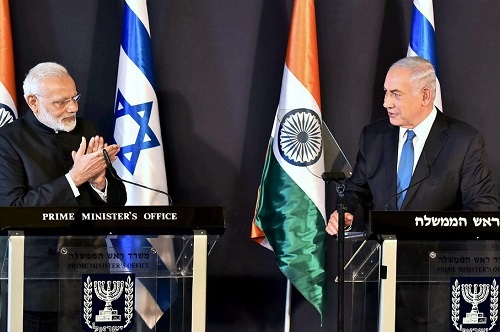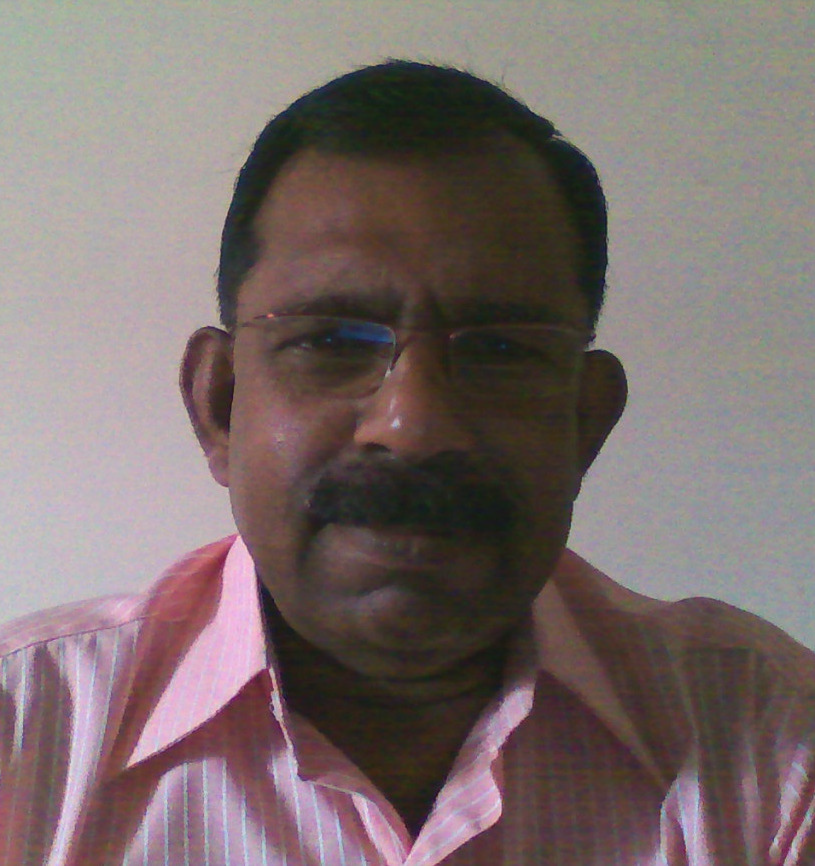Reuters photo
By
Jose Kalathil
At the same time US President Donald Trump announced the US would shift its embassy in Israel from Tel Aviv to Jerusalem, a promise he had made during the elections, a senior official from the Israeli ministry of foreign affairs was in India to launch the three-year Indo-Israeli Agricultural Project (IIAP) plan, one of the several projects that was signed between the two countries during Prime Minister Narendra Modi‘s visit to that country from July 4 to 7, 2017.
Ambassador Gil Haskel, Deputy Director General, Ministry of Foreign Affairs, and Head, MASHAV, Israel Agency for International Development Cooperation, during his three-day visit from December 4 to 6, 2017, also visited Bengaluru and Mumbai, apart from New Delhi.
At the function in the national capital, he mentioned his special love for India as he had started his diplomatic career in New Delhi 25 years ago in the political section of the embassy here. “India and Israel have been old partners and we look forward to have more cooperation in future. I have a special connection with India. At this occasion, I would like to share that I started my diplomatic career 25 years ago in New Delhi. So, this place is close to my heart,” Haskel said.
“The IIAP is MASHAV’s biggest project outside Israel, and it holds a significant portion of our bilateral relations. The success story of our agricultural cooperation is second to none, and it is only the beginning,” Israeli Ambassador to India, Daniel Carmon, said at the launch.
Haskel also met officials from the ministries of agriculture, external affairs and state governments. He also inaugurated a Centre of Excellence for flowers in Thally, Tamil Nadu. Haskel also handed over two grants of $10,000 each to MASHAV alumni, Indu Sahu and Digambar Singh Negi, to continue their projects in women and farmer empowerment in India, respectively, during the function.
Indu was awarded for her project on mainstreaming women of difficult professions through capacity building and linkage with developmental work in the interiors of Chattisgarh and Negi was awarded for his works on reverse mitigation project in Jakhnoli village in Uttarakhand which aims to empower farmers.
“The project is the unique ingredient in international cooperation and partnership. Israel was happy to share the development laboratory with Indian friends. Sharing farm, patient, citizen, student in Israel with Indian farm, patient, citizen, student in India is our intention,” the envoy added.
A steering committee has also been formed with officials from the Ministry of Agriculture to discuss the remaining issues. The next meeting of the committee will focus on further cooperation in technology to help achieve Modi’s dream doubling farmers’ per capita income by 2020.
The ambassador also disclosed that 26 agricultural centres of Indo-Israeli cooperation are already functioning in nine states of the country. “Our aim is to increase this number to 30 centres of excellence. Mashav acts as a bridge between culture, research and development,” Carmon said.
“We hope that the Mashav alumni will disperse their expertise that they learned in Israel in remote areas of the country. Our next plan is to empower women in agriculture. As per plan, 140 women will be trained in 2017,” Haskel said.
Israel, which has expertise in water resource management and irrigation, desert agriculture and combat of desertification, early childhood education, rural and community development, emergency and disaster medicine, public health, empowerment of women, and many others, has been imparting knowledge to people from all over the world.
In the last 60 years, Israel has trained 270,000 people from various countries in several fields. Over 2,000 Indians have already been trained in Israel in sectors such as food security and agriculture, water management, education, public health, community development, innovation and entrepreneurship, gender equality and women’s development, rural and urban development, emergency planning and response. They are doing a commendable job in the country by dispersing their knowledge.
Every year, Israel trains 1,000 people from all over the world, of which 50 are Indians. At the same time, 50 Israelis are attached to several projects in India. A good example of Indo-Israel cooperation is the Centre of Excellence for Vegetables, in Haryana, which is the largest-ever project of Mashav. The centre trains people in canopy management, nursery management, micro irrigation, etc. Mango, citrus, vegetables, etc, are grown here and during open days, about 20,000 farmers visit the centre to gain knowledge.
After the destruction of the USSR in 1994, Israel was able to establish diplomatic relations with several of its former states. “We are keen on having partnership with our neighbouring countries as well (as) Palestine. Our motto is to share our expertise with others, so that all will benefit. Our job is challenging but promising,” he said.
It took more than four decades for both Israel and India to establish diplomatic relations, after both became independent almost the same time, India in 1947 and Israel in 1948. India recognised Israel on September 17, 1950, but relations were established only in 1992. Since then, bilateral ties are seeing an uptrend with many high-level visits from both countries in the last 25 years – the latest being Narendra Modi’s to Israel in July, the first-ever by an Indian Prime Minister. Earlier, then President Pranab Mukherjee had visited Israel from 14 October 2015.
Meanwhile, Israeli Prime Minister Benjamin Netanyahu will arrive in India on a three-day visit on January 14, 2018. He will be the second Israeli Prime Minister to visit India after Ariel Sharon in 2003. He will reach Gujarat first, then Delhi. A visit to Agra is also in the itinerary. During the visit, it is expected that an agreement on free trade will be signed. Other issues on focus are innovation, agriculture, water management. The bilateral trade between the two countries, excluding defence is around $5 billion. However, like other countries, India has no intention to shift its embassy from Tel Aviv to Jerusalem.
Jose Kalathil
Jose Kalathil is a senior journalist based in New Delhi. With more than three decades of experience in different publications in India and Nepal, he is comfortable writing on any topic under the sun.



No Comments Yet!
You can be first to comment this post!